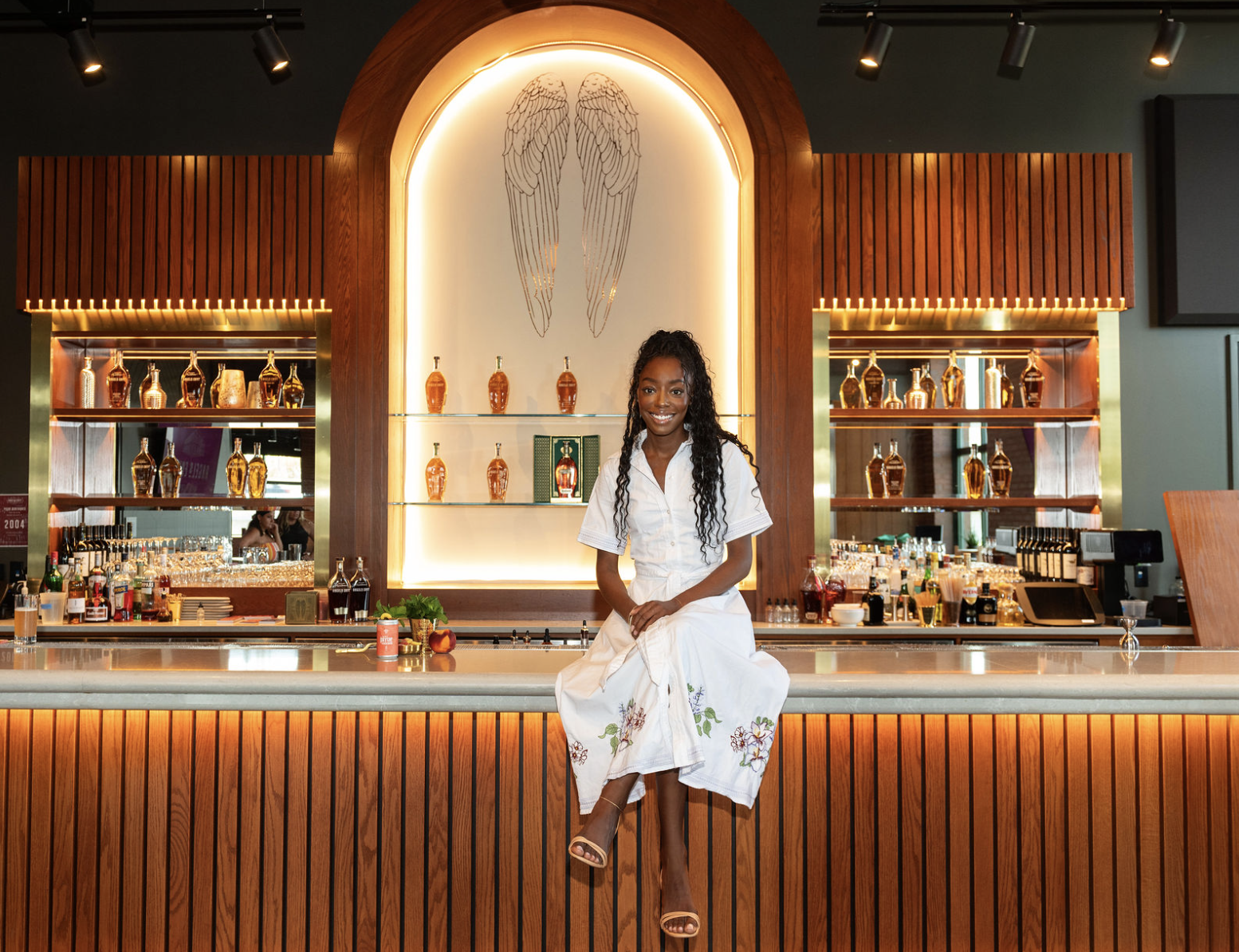By the time Venita Aspen made her debut on Bravo’s “Southern Charm,” it was already clear she wasn’t just stepping into a reality show. She was stepping into a space that had rarely made room for women who looked like her. As the first Black woman to appear on the long-running series, Aspen brought with her not just style and wit, but the quiet power of representation. What many didn’t see, though, was how difficult that seat at the table could be.
“If I’m being really honest with you, it’s extremely hard,” she admitted to 21Ninety. “And you think it gets easier with time, but it actually kind of gets a little harder… You start to believe the negative things people say about you.”
Now in her early 30s, Aspen is more than just a former reality star. She’s a culinary-school-trained chef, a content creator, and a beauty entrepreneur. She’s partnered with brands like Skinceuticals, DSW, and Angel’s Envy, and continues to use her platform to talk openly about colorism, identity, and what it means to be a Black woman in predominantly white spaces, especially on television.
When the Spotlight Burns
For many Black women, reality television is a double-edged sword. It’s an opportunity for visibility that often comes at the expense of being allowed to be fully human. Aspen knows this too well.
“I truly can’t fully be myself like my castmates,” she explained. “If I do too much, then I get in trouble, and it’s the end of my entire career. Whereas they can do anything and everything under the sun—and they’ll be asked to come back next season.”
The expectations placed on Black women in these environments are high and unforgiving. Be poised but not cold, fun but not “too much,” vulnerable but not messy. It’s a narrow tightrope to walk, and when you’re the only Black woman on a cast, the weight feels even heavier.
Aspen says the message is often unspoken but clear.
“You can have a little fun, but don’t have too much fun because you’ll get in trouble,” she said.
It’s a reality that exists not just in front of the camera, but behind it too.
“We need producers that look like us in these rooms, and we need editors that look like us,” Aspen explained. “That’s the only way we’ll ever be seen in a light where we’re being uplifted and not treated like, ‘Oh, she’s being promiscuous,’ or ‘She’s doing too much.’”
Surviving the Visibility
As her profile rose, so did the scrutiny, especially online. For Aspen, preserving her peace became more important than keeping up with the algorithm.
Deleting TikTok, stepping away from Instagram, ignoring Reddit threads; these were small acts of rebellion, and healing.
“I just made sure that if I felt happy doing something, then that was great,” she said. “And if someone had something negative to say about it, that’s them, not me.”
When asked what advice she’d give other Black women navigating public visibility, Aspen was candid that she doesn’t quite have the answer yet, but she does know the value of community.
“Make sure the people you’re surrounding yourself with always make you feel comfortable, because if you don’t have a core group, it makes it ten times harder to do anything,” she shared.
A New Kind of Spotlight
Despite the challenges, Aspen isn’t retreating from public life. She’s just choosing the spaces that embrace her. This summer, she showed up as herself at the Angel’s Envy Daycap Pickleball Street Fest in Louisville. The event celebrated “golden hour” energy: rackets down, laptops shut, and a toast to small victories.
Aspen, along with fellow actor Mel Roberson, played in what she called her “baby’s first pickleball tournament.”
“We crushed it out there,” she laughed. “It felt really good. It was so nice to see other people that look like me out there playing organically. Like, wow—OK, we do play pickleball. We do get out and play these games. We’re a part of this community.”
That sense of inclusion, Aspen says, is still far too rare, whether in sport, spirits, or media. So when Angel’s Envy tapped her to represent the brand at the event, it felt meaningful.
“I’ve always kind of been a bourbon girl,” she explained. “But Black women aren’t really represented in any spirit, unless it’s something sweet or has a certain stigma attached to it. So being able to be the face of Angel’s Envy in this tournament meant a lot.”
Her favorite drink of the weekend? The Peach Smash: “1.5 ounces of bourbon, 1 ounce lemon juice, peach syrup, sparkling lemonade, a peach ring, and mint,” she recited with a smile. “I think I got it all.”
More Than a Moment
Aspen is turning her lived experience into a call for structural change in an industry still learning what inclusion really means. Her goal isn’t just for herself, it’s for the next Black woman who dares to show up fully, honestly, and unapologetically.
“I hope at some point we get the same freedom our castmates have,” she says. “Because right now, we don’t.”
And until that happens, she’s making space for it on her terms.
